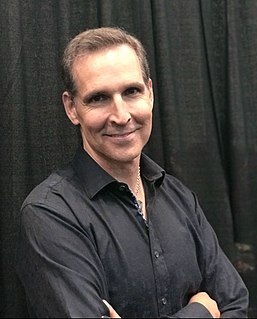A Quote by Geena Davis
Instead of trying to manufacture feelings, use the way you already feel. Or at least add that in.
Related Quotes
Self-absorption is always a temptation to young people, and if their religion is of a sort to add to this self-absorption, I feel that it is a serious mistake. If I had my way, the whole subject of feelings and emotions in the religious life would be absolutely ignored. Feelings there will be, doubtless, but they must not be in the least depended on, nor in any sense taken as the test or gauge of one's religion. They ought to be left out of the calculation entirely. You may feel good or you may feel bad, but neither the good feeling nor the bad feeling affects the real thing.
I know our feelings can be so unbearable that we employ ingenious strategies – unconscious strategies – to keep those feelings away. We do a feelings-swap, where we avoid feeling sad or lonely or afraid or inadequate, and feel angry instead. It can work the other way, too – sometimes you do need to feel angry, not inadequate; sometimes you do need to feel love and acceptance, and not the tragic drama of your life. It takes courage to feel the feeling – and not trade it on the feelings-exchange, or even transfer it altogether to another person.
I don't use "feelings" as a diminutive word. I'm trying to take feelings back. I think of everyone on the internet whose response to everything is: "#Feelings! This is important, this is real, this is significant!" That connects to power, too. Wanting to feel like you have power and control over your life.
I remembered what it was like: the weirdness, being the odd man out, trying to make my way around campus, and trying to figure out who my friends would be, who to steer clear of. I wrote it all down in a fanciful way - the feelings of alienation, the feelings of uncertainty, of being away from home for the first time.
When I allow myself to feel all my feelings instead of numbing myself to them, they pass more quickly. I spent my entire life telling everyone I was "OK, damn it." But when you surrender to the [uncomfortable] feelings, there are gifts on the other side: Allowing yourself to feel loneliness forces you to reach out. Letting yourself get angry gives you strength, energy and motivation.
I have received emails from readers who have said that they were emotionally impacted by the books, and they feel they are more environmentally aware and energized to do more. So that's hopeful to me. It is at least evidence of what I'm trying to do - trying to convey very intense emotional experiences by being very close in on character points of view to make you feel it in your body. That's one way to get the point across, by evoking a visceral response.
The German physicists knew at least so much about the manufacture and construction of atomic bombs that it was clear to them that the manufacture of bombs in Germany could not succeed during the war. For this reason, they were spared the moral decision whether they should make an atomic bomb, and they had only worked on the uranium engine.




































